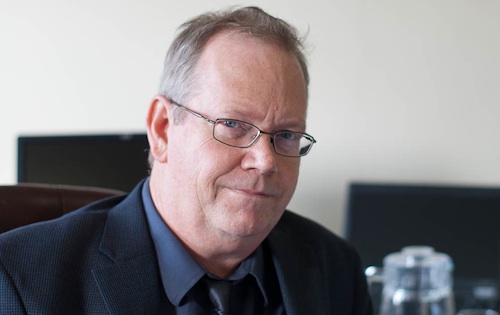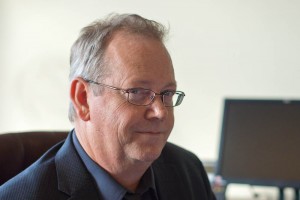
Icasa councillor William Currie is a soft-spoken, warm man who is passionate about the communications industry. Currie tells me over a meeting in his Sandton office that although he came from a technically minded family he somehow wound up working in the policy-making and regulatory side of the communications industry.
“I’m from a family of Scottish engineers who came to Durban in the 19th century. My great grandfather was responsible for the waterworks in Durban — Currie’s Fountain is named for him,” he says.
His father was involved with bringing early mainframe computers to the country. “I’m not sure how one ascribes any influence from that sort of childhood to where I’ve ended up now,” he says. “Despite growing up surrounded by enormous machines I have no technical training myself. I was always more interested in politics and media studies.”
Currie says he’s always been interested in the “interface between decision-making and the technical side of communications”.
“I just happened to get more involved with policy than the technical dimensions.”
 In the 1980s, he was involved with the United Democrat Front and the Film & Allied Workers Organisation. They campaigned around issues related to how SA could develop a film and TV industry freed of the history of apartheid.
In the 1980s, he was involved with the United Democrat Front and the Film & Allied Workers Organisation. They campaigned around issues related to how SA could develop a film and TV industry freed of the history of apartheid.
“The unbanning of political parties was happening at the time, and I was very interested in the attempts by the National Party government to restructure broadcasting via the Viljoen Commission. From there I worked as an advisor for Pallo Jordan when he was minister [of posts, telecommunications & broadcasting] and coordinated the White Paper on policy.”
He later joined the council of Icasa’s predecessor, the SA Telecommunications Regulatory Authority, and was again involved between 1999 and 2002 where he gained first-hand experience of the complexity of regulating the industry.
After that, he moved to New York where he worked for the Association for Progressive Communications on global advocacy around Internet governance, among other issues.
He returned to the country in 2009 and joined Icasa again the following year. “My wife had a contract with the Ford Foundation, so we hadn’t emigrated; we were just working internationally and decided to come back.”
Would they have stayed if they could? “No, there’s no place like home.”
With his having been away from Icasa for eight years, I ask Currie what changes he has seen since returning to the authority. “The technology has changed but the issues of how you regulate the sector effectively to achieve universal access and create a competitive industry are still the main issues being grappled with,” he says.
Back then, the big issues were how to get a third mobile operator into the market and Telkom’s listing in Johannesburg and New York.

“Now, it’s much more a question of how do we actually create a path to widespread high-speed broadband as soon as possible, and what are the implications of this,” he says. “Everything is now tied up with the digital migration process — we need to create a viable digital terrestrial television platform, and decide how the spectrum freed up by the switch from analogue to digital will be used.”
I ask Currie what he thinks are the most pressing issues facing Icasa? “I think that depends how you understand the regulatory system in this country — I prefer to see it as a regulatory complex. There’s a wide range of stakeholders, including various levels of government, the portfolio committee on communications, the department of communications, and the private and public sectors. The question is: how do you get this complex aligned around certain important national goals in a way that they can be achieved effectively?
“I think the two key goals are getting high-speed broadband into the country quickly, and secondly, to effect the digital TV migration. In each of those processes a range of stakeholders are involved and in some instances those stakeholders operate in a competitive environment, but the thing to remember is that social goals are in everybody’s interest.”
He says his job is figuring out what the policy and regulatory issues are that will help facilitate migration. And in broadband, he says Icasa is getting its head around issues such as infrastructure sharing, available spectrum and local-loop unbundling.
“I’m interested in how decisions get made,” Currie says when I ask him what interests him most about his work. “When one looks at the media or the development into this Internet age, there are important issues around freedom of expression and the constitutional right to receive and send information and how this informs decision making. Access to information affects the quality of decision-making, and hence the quality of democracy. There’s also a representational dimension. Your image repertoire can’t only consist of Hollywood. You need your own culture and environment reflected. Issues around the SA film and digital content industries are of particular interest to me.”
When he’s not up to his neck in regulatory complexity, Currie says he relaxes by watching TV, going to the movies and listening to music. He’s a big Radiohead fan and also enjoys jazz piano — “all sorts of things, from Abdullah Ibrahim through to Jason Moran.” — Craig Wilson, TechCentral
- Subscribe to our free daily newsletter
- Follow us on Twitter or on Facebook




